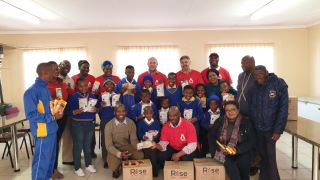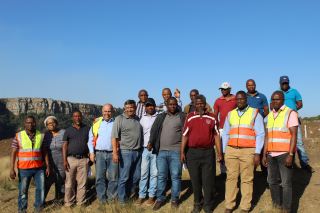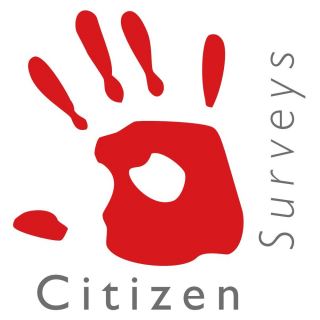R5,5 million over 11 years to those in need
Crescent Lifestyle’s 11th Annual Beneficiary Payout amounts to R500 930.34 only made possible through the continued support of their loyal members.
Crescent Lifestyle is South Africa’s only complete Islamic Lifestyle product available via an award winning App. Founded in 2008, Crescent Lifestyle continues to empower, unify and enhance the Muslim lifestyle by creating sustainable revenue by offering various value-added products which are relevant to the Muslim community.
Crescent Lifestyle is proud to be a business with strong social responsibilities which support and uplift Muslim communities, on behalf of their members. Since inception, they have donated R5.5 million to various organisations around the country. This is made possible only through the loyal support of the Crescent Lifestyle Members whom are provided with a choice to donate their contributions to their chosen beneficiaries which includes Masjids, schools and various Non-Profit Organisations. One of the central tenets of Islam is the giving of alms and charity to those less fortunate than ourselves, and Crescent Lifestyle aims to facilitate this aspect for their members.
Crescent Lifestyle Managing Director Al-Firnas Patel, “After 11 years in operation Crescent Lifestyle continues to fulfil our vision to unite the Muslim community to work together to help those in need. Alhamdulillah, this has only been possible through the support of our loyal members.”
NOTABLE MENTIONS:
Gift of the Givers R35,466-00
Beitul Aman Old Age Home R32,836-97
Al-Imdaad Foundation R26,020-88
Ikageng – Orphans with HIV R25,007-68
Sultan Bahu Centre R20,540-37
Vision Child and Youth Care Centre R17,155-36
Baitul Ilm Organisation R16,257-29
Muslim Judicial Council R15,934-00
Baitul Ansaar Charitable Foundation R13,977-59
Ihata Shelter R11,237-33
For more information about Crescent Lifestyle:
Website: www.crescentlifestyle.com
Instagram: crescent_lifestyle
Facebook: @CrescentLifestyle
Download the App: http://bit.ly/CresLife
AFRISAM EMPOWERS EMFULENI PUPILS WITH FOOD PACKS AND STATIONERY
18 July 2019, Vanderbijlpark – South Africa’s leading construction materials company, AfriSam and employees at its Vanderbijlpark operations recently celebrated International Mandela Day by visiting nearby Emfuleni Primary School in Bophelong to deliver food parcels and stationery to the 1 200 learners most of whom come from poverty-stricken households. The visit led by AfriSam’s Plant Manager, Mr David Labuschagne, was in celebration of the life of our late former president Nelson Mandela and marked AfriSam’s employees 67 minutes of serving others and making a difference.
Emfuleni Primary School is a public school with about 1 200 learners with challenges that includes poor ablution facilities, overcrowded classrooms plus majority of the children are orphans.
“We heard about the plight at the school from one of our employees and decided to donate food parcels and stationery to assist in creating a conducive learning environment. Though this was only a small contribution, we see it as a start in the right direction and hope to contribute much more in future,” says Labuschagne.
Nelson Mandela Day commemorates the lifetime of service Madiba gave to South African’s and the world, and it calls on us all, every day, to make the world a better place. Children and education have been very close to former President Mandela and supporting the Emfuleni Primary School pupils this year was an easy decision to make for AfriSam.
“We strive to reiterate the word of Nelson Mandela to create a better world for all and we encourage everyone to play a part," added Labuschagne.
AfriSam continuously invests in various social and economic upliftment projects that contribute towards improving the lives of all citizens and communities near its projects. The company has one of its cement plant operation in the Emfuleni region of Gauteng
The company also offers support to local communities in areas dealing with early childhood development (ECD) initiatives and educational infrastructure with focus on schools; classrooms, ablution facilities and kitchens development or upgrades.
ABOUT AFRISAM:
AfriSam is the leading black-controlled construction materials group in southern Africa. Since establishing its first cement plant in 1934, the company has grown into a formidable group with operations in South Africa, Lesotho, Swaziland and Tanzania. From its seven cementitious manufacturing facilities, 17 quarries and 40 readymix operations, the group has the capacity to produce in excess of 5 million tons of cement, 10 million tons of aggregate, 800 000 tons of slagment and 4 million cubic metres of readymix concrete annually.
This Press Release was published by Archy Hlahla, Hlengani Communications on behalf of AfriSam SA.
CONTACT: Maxine Nel
Head of Corporate Communications, AfriSam
This email address is being protected from spambots. You need JavaScript enabled to view it.
011 670 5893
Effective Community Engagement - A Model for Success
Sheldon Mayet, Group Transformation Executive, Concor Construction
To ensure long term success and a positive reputation, companies need to place community engagement at the forefront of their agenda before commencing with their projects.
Community Engagement refers to the dynamic relational process that facilitates communication, interaction, involvement and exchange between an organisation and a community for a range of social and organisational outcomes. It is a way of developing a working relationship between companies, public bodies and community groups. (SCDC - We believe communities matter, 2019)
Sheldon Mayet, Group Transformation Executive of Concor Construction says, “it is essential for companies to collaborate with and build communities in areas they operate. Community Engagement is about sustainability, it is about making a remarkable, realistic difference in society, within the budget and boundaries of what we can do.
When engaging communities, he suggests the 3C approach to ensure maximum benefits and value for all parties. First you need to Consult, then Communicate and finally, Compromise.
- Before starting a project, you must consult all the relevant stakeholders and community gatekeepers. Seek information and advice from community leaders, e.g. the chief, religious and political leaders etc. It is essential to understand the powerbase within a community. , Engaging key figures will help to understand local community needs and jointly find solutions to pressing needs such as skills development and training.
- Establish ongoing communication forums and provide regular updates (weekly or monthly) about plans and outcomes. It is crucial that you are clear and honest in all communications.
- Listen to what people are saying, consider their needs and concerns, and meet them halfway. Compromise to reach common ground and be fair to all parties.
A well-planned strategy uplifts the community and helps create long term social stability. Your community engagement strategy should also ensure that it creates room to develop opportunities to address local challenges such as poverty and local economic development.
“It is important to understand that communities are different, and you cannot always apply the same strategy in two different places. Approach each community with an open mind, and be willing to listen and learn,” says Mayet.
Every society is unique; therefore, it is important to research, know and understand the demographics of the area you are engaging. Mayet adds that trust is very critical. “You need to establish a sense of trust with the people you are engaging in order to obtain the licence to operate. Do not sell dreams or say things that you cannot deliver.”
Concor has a remarkable understanding of local engagement and its success is a good example to emulate. Mayet has been in the industry for over a decade s and has successfully executed numerous projects including engaging the community of Msikaba in the Eastern Cape where the company is building the Msikaba Bridge, the community of Hantam in the Northern Cape where the Loeriesfontein wind farm is installed and the community of Sunnyside, Jeffrey’s Bay in the Eastern Cape province where the Jeffrey’s Bay wind farm is located.
Mayet shares the following lessons from his many engagements:
- When running a project, there are always unexpected challenges, be agile and flexible to respond to all eventualities
- Lobby as many local leaders and key role players as possible. Always remain impartial and never take sides on social or political issues in the community
- Whatever you do, ensure that you add value to the community. Make every effort to create opportunities for social cohesion through education, sports, and community events.
- Be clear on what the project will give back to the community in terms of job opportunities, trainings, wages and overall work environment. Do not overcommit and underdeliver.
- Always be available for the community when they need your attention or assistance.
One area in which Concor has consistently enjoyed success, is through empowerment of local supplier’s project communities, this is done by local material suppliers and contractors.
This article was published by Archy Hlahla, Hlengani Communications on behalf of Concor Construction.
Sishen Iron Ore Company-Community Development Trust (SIOC-cdt) invests in social impact research with a difference
In November 2018, the Sishen Iron Ore Company – Community Development Trust (SIOC-cdt) contracted Citizen Surveysto conduct a needs analysis within the five local municipalities in which it operates. This will assist the Trust to update its Community Development Strategy and ensure that it can have a meaningful impact on these Northern Cape and Limpopo communities.
Established in 2006 by Kumba Iron Ore Limited to invest in the development of the communities in which the company operates, SIOC-cdt derives dividends from its shareholding in the Sishen Iron Ore Company (SIOC) and has spent over R1-billion so far in community development projects.
These projects seek to strengthen the communities surrounding its mining activities and ensure that they are sustainable once these mines close.
“SIOC-cdt aims to have a genuine and lasting impact on these communities as a result of its community development projects, rather than relying on metrics such as how much money it has spent or projects it has funded,” says Managing Director of Citizen Surveys, Washeelah Kapery.
SIOC-cdt is active in five local municipalities. Four of these are in the Northern Cape and surround the Sishen Mine in Kathu and Kolomela Mine in Postmasburg. These are the Joe Morolong, Gasegonyana, Gamagara and Tsantsabane local municipalities. While the Thabazimbi Mine in Limpopo was recently sold to ArcellorMittal, SIOC-cdt has legacy projects and thus an obligation to communities within the Thabazimbi Local Municipality.
“We specialise in large-scale national surveys that investigate the perceptions, needs and experiences of South Africans,” continues Kapery, “and we have invested into developing research systems that enable us to provide strategic insights and solutions.”
“SIOC-cdt is in the process of updating its Community Development Strategy for the next five years and wants to ensure that its community development strategies and projects are based on sound research into the needs of the different communities,” says Vusani Malie CEO of SIOC-cdt. “Citizen Surveys will be conducting household surveys with communities, interviews with community leaders and subject experts, and integrating information from other data sources (e.g. Stats SA, municipal IDPs) into the findings. This will create a solid foundation to provide planners with the information they need to prioritize sustainable development projects to offer in a community. In this way, projects can be designed to alleviate real social and economic problems”.
The research will commence in mid- December 2018 and will run until the end of February 2019. Once this research has been completed, SIOC-cdt will make it available to other organisations engaged in social development within these communities.




